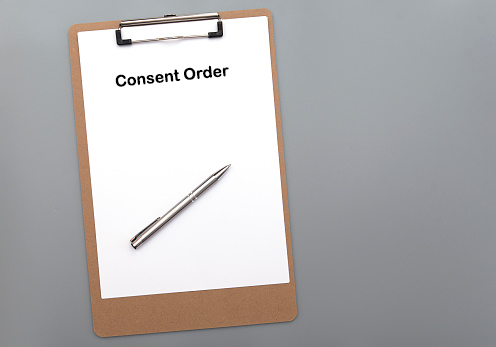Why do you need a Consent Order?
If you have managed to reach an agreement outside of court about contact and residence, that’s great news, but informal agreements are often subject to change and have no legal weight. If circumstances change or tensions rise between parents, such agreements can break down easily, leaving no option for enforcement. A consent order makes such informal agreements legally binding and enforceable, giving you more stability and certainty for the future.
MIAM (Mediation)
In other articles, we have explained that in most cases, you will need to attend a MIAM before you can apply to court. This is one of the exceptions however, so don’t arrange to meet with a mediator for this application. This step is omitted since you have already communicated with the other parent to come up with an agreement about your child(ren).
Applying for a Consent Order
- First of all, you will need to come up with a carefully structured agreement for contact and residence, To help you, these are some of the things you should consider:
- Residency – make it clear who the child(ren) should live with and when
- Contact – specify clearly who the child(ren) should have contact with and how frequently
- Flexibility – it’s a good idea to include some scope for flexibility in your arrangements for contact to allow for school holidays, trips, special occasions etc so make sure that the arrangements for contact aren’t so rigid that they won’t work.
- Terms of Contact – State how contact will take place. Where will handover take place, who will complete handover, who will travel, will travel be shared, what will happen if someone is delayed, is there to be a handover book to aid communication etc
- Travel – Any arrangements for travel overseas. Whether the non resident parent is able to take the child(ren) abroad and arrangements for handover to facilitate this.
- You will need to use the C100 Form to apply for the consent order. Attach a copy of your agreement when you apply.
- When you are completing your C100, you will be able to choose the option on Page 1 that asks ”Are you applying for an order to formalise an agreement (consent order)?”. You should also tick the “Yes” box for ”Additional Information Required” since you will be attaching a copy of your agreement.
- Your completed C100 form should be sent to your local family court with the court fee if applicable.
- There is a £215 fee to make the application but if you are on a low income, click here to find out how to apply for a partial or entire fee waiver.
Do I Need a Solicitor?
You don’t need a solicitor to write up an agreement for a consent order, however it’s a good idea to use someone who has experience in writing something like this. A solicitor would be able to help you to make sure that everything was covered and that your agreement was watertight to avoid having to go back to court at a later date if the plan isn’t working.
Alternatively, a mediator can help you to draw up a Cafcass Parenting Plan or you could do this on your own or with the help of a Mckenzie Friend.
The court will use your informal agreement to create a final consent order which will also include information about how the order should be enforced.
Going to Court
Both parties will be invited to a hearing to allow the court to check that the agreement has been fully consented to. If necessary, safeguarding checks may need to be carried out by CAFCASS.
Usually, a consent order allows you to skip a lot of the usual family court formalities since the order should be fairly straightforward to be approved by court officials. This means that the case for a consent order should be completed in a relatively short amount of time.
Having said that, there is not a guarantee that your agreement will be unchanged by the court since it will be assessed to make sure that it is in the best interests of the child(ren). If the court does not feel that it would benefit the child(ren), then the court may choose to make changes or to simply refuse the consent order.
Enforcement of a Consent Order
If either party is in breach of a consent order, then this is treated as any other child arrangements order and so you would need to fill out form C79 and submit this to your local family court.


